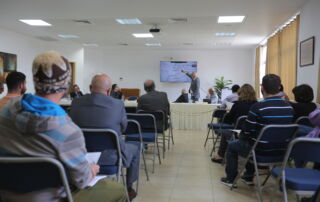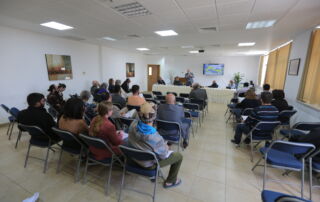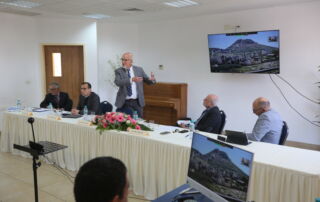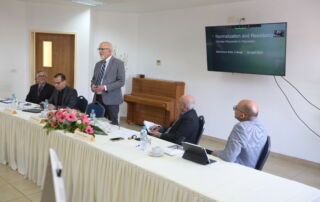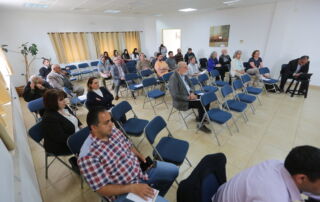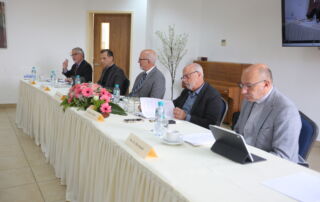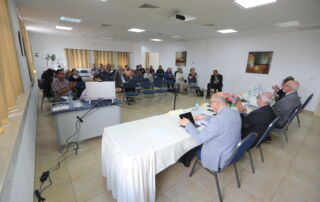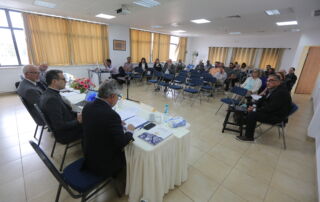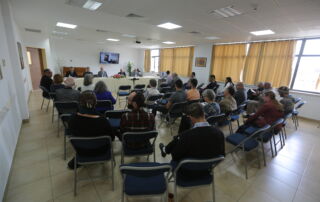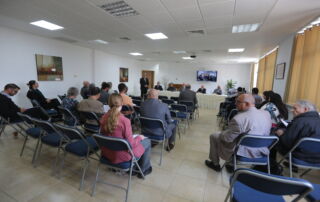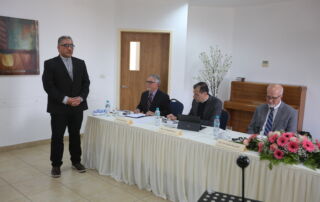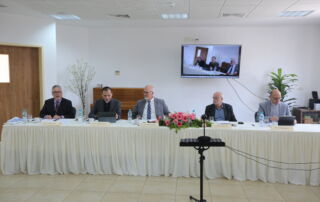On April 28, the Bethlehem Institute of Peace and Justice (BIPJ) at Bethlehem Bible College conducted an academic symposium entitled “Normalization and Resistance: Christian Responses to Oppression.” This topic is not theoretical to the Palestinian community, which must live under the burden of the occupation every day and is at times divided by how to respond.
Andrew Bush, the director of the BIPJ, says, “This symposium represents the goal of the Institute to bring the voices of international peacemakers to Palestine and to bring the insights of Palestinian peacemakers to the wider international network of peacemakers.”
Nelson Kraybill, formerly president of the Mennonite World Conference and scholar in residence at the BIPJ through this academic year, opened the symposium with a discussion of the Biblical examples of either accommodation or resistance to empire. He noted different responses, even by the same biblical figures, such as the apostle Paul. He then described from his year of research that Christian Palestinian leaders take different postures regarding Israel’s oppressive policies toward the Palestinian community.
Mitri Raheb, the founder and president of Dar Al-Kalima University, pointed out that the gospel of Jesus could only have developed in ancient Palestine because Palestine was historically a marginal province to different empires. He argued that Jesus is on the margins.
Salim Munayer, the founder of the reconciliation organization Musalaha, emphasized that, unlike the Roman Empire which was a backdrop to the New Testament authors, Israel enforces ‘settler colonialism’ which seeks to supplant and eliminate the local Palestinian community. He commented that there is a need for more such conversations between Palestinian leaders on this topic. He also conveyed that he continually meets Jewish Israelis eager to get to know Palestinians.
A lively discussion followed these presentations. In answering whether there is hope that enough minds can be changed for justice and peace to become a reality, Salim Munayer stated that it had been shown in other contexts that if only three or four percent of the population becomes engaged in peacemaking, changes can occur.
Munther Isaac, the academic dean of Bethlehem Bible College, concluded that the terms people use in describing the situation in Palestine should be accurate. He said, “It is often misstated that this is a ‘conflict’ which gives the false idea that two equal sides are fighting each other. Rather, what is occurring is that one party, Israel, is dominating a much weaker people, Palestine.” He challenged the audience that one cannot be neutral in such a circumstance.
Fifty local leaders attended, and almost 250 registered for the simultaneous webinar. The symposium will be available online as a video recording in the coming days. The BIPJ also plans to publish the symposium content in book form.
In closing, Andrew Bush welcomed people to explore the online courses of the Bethlehem Institute of Peace and Justice at www.bipj.org.


